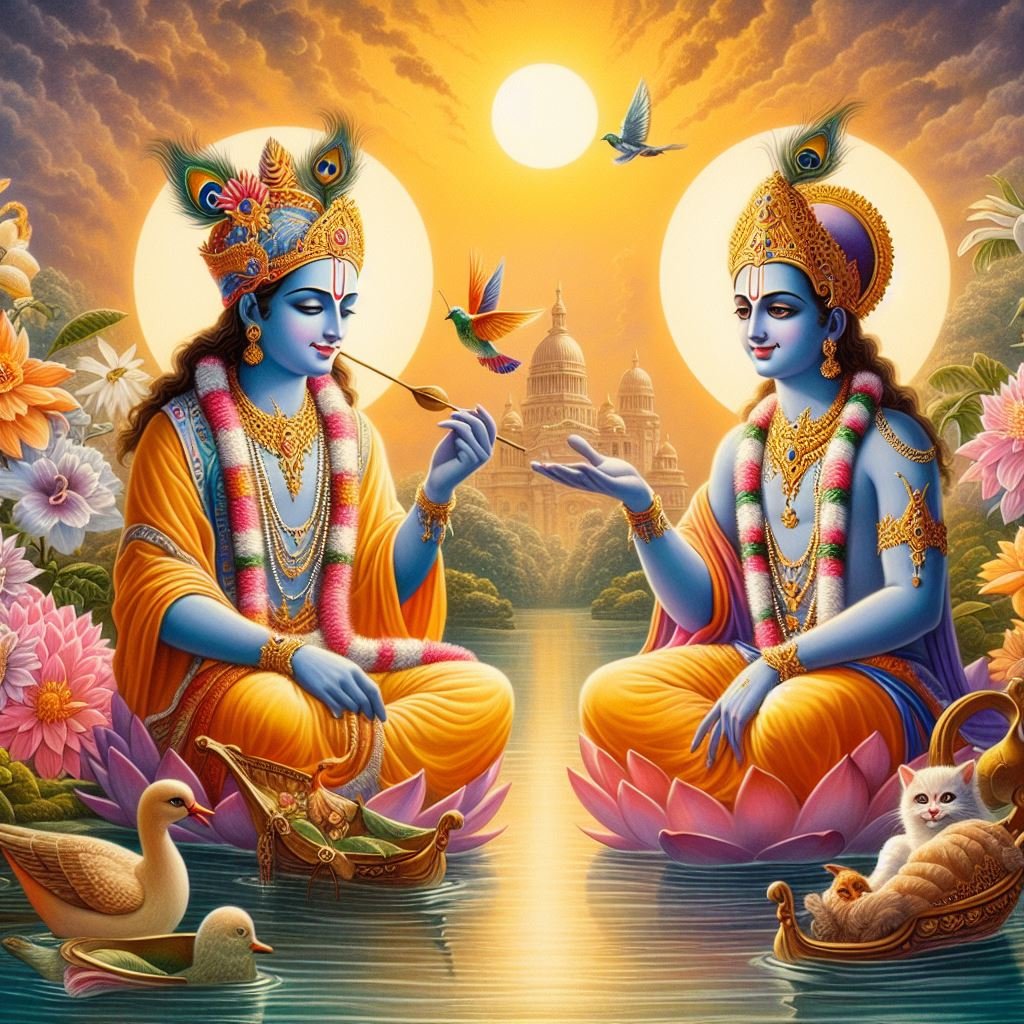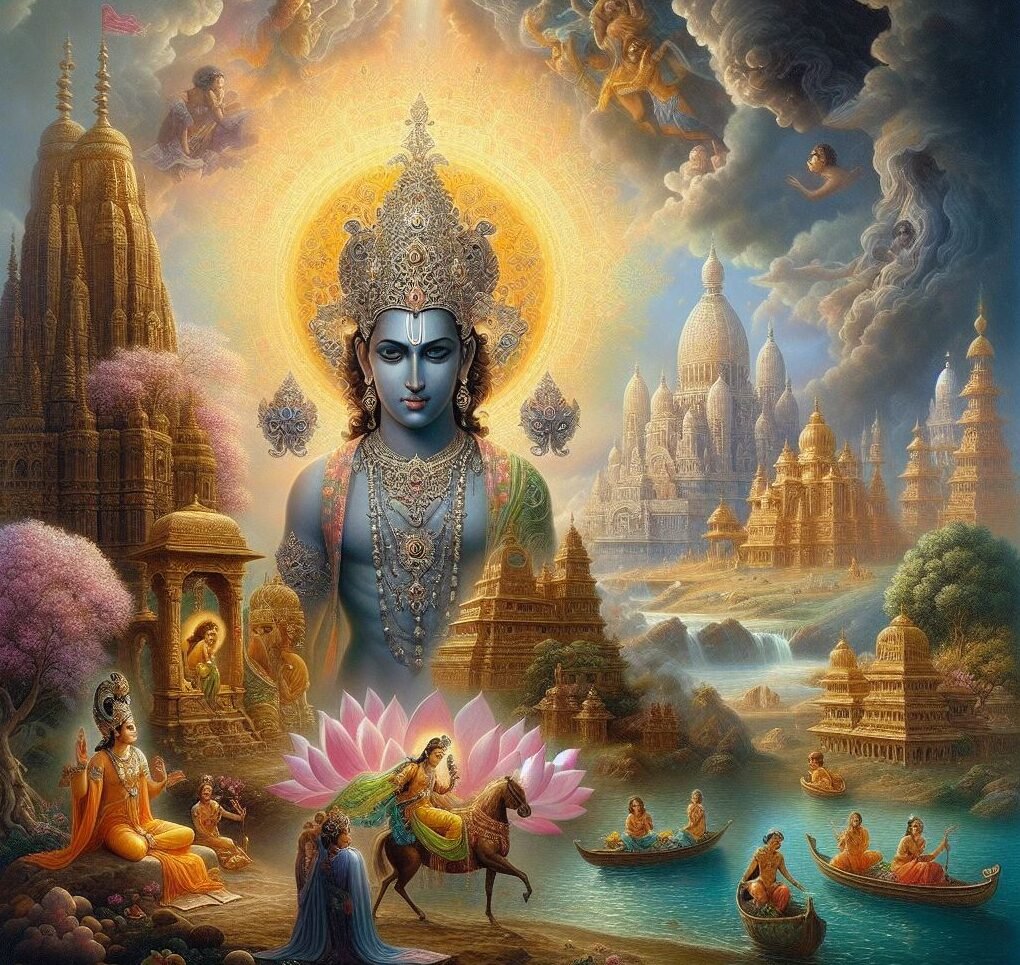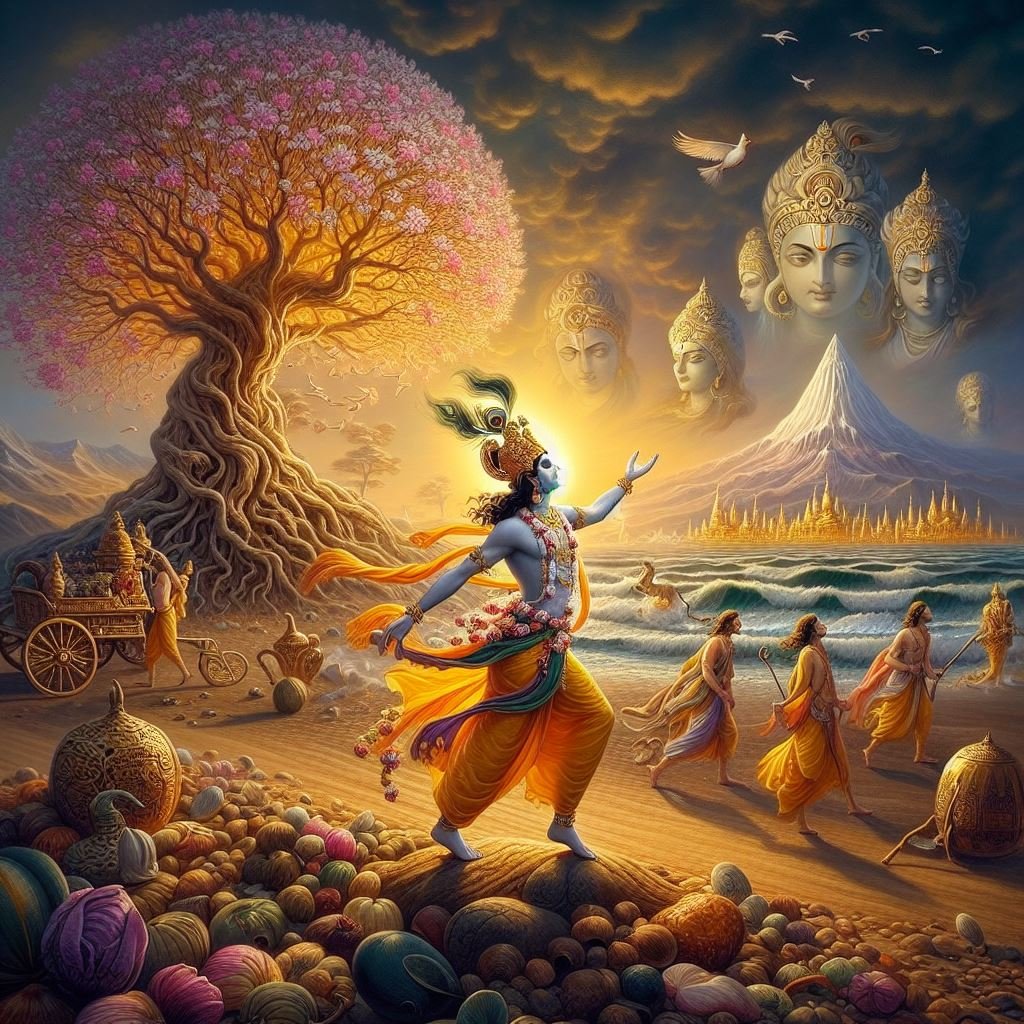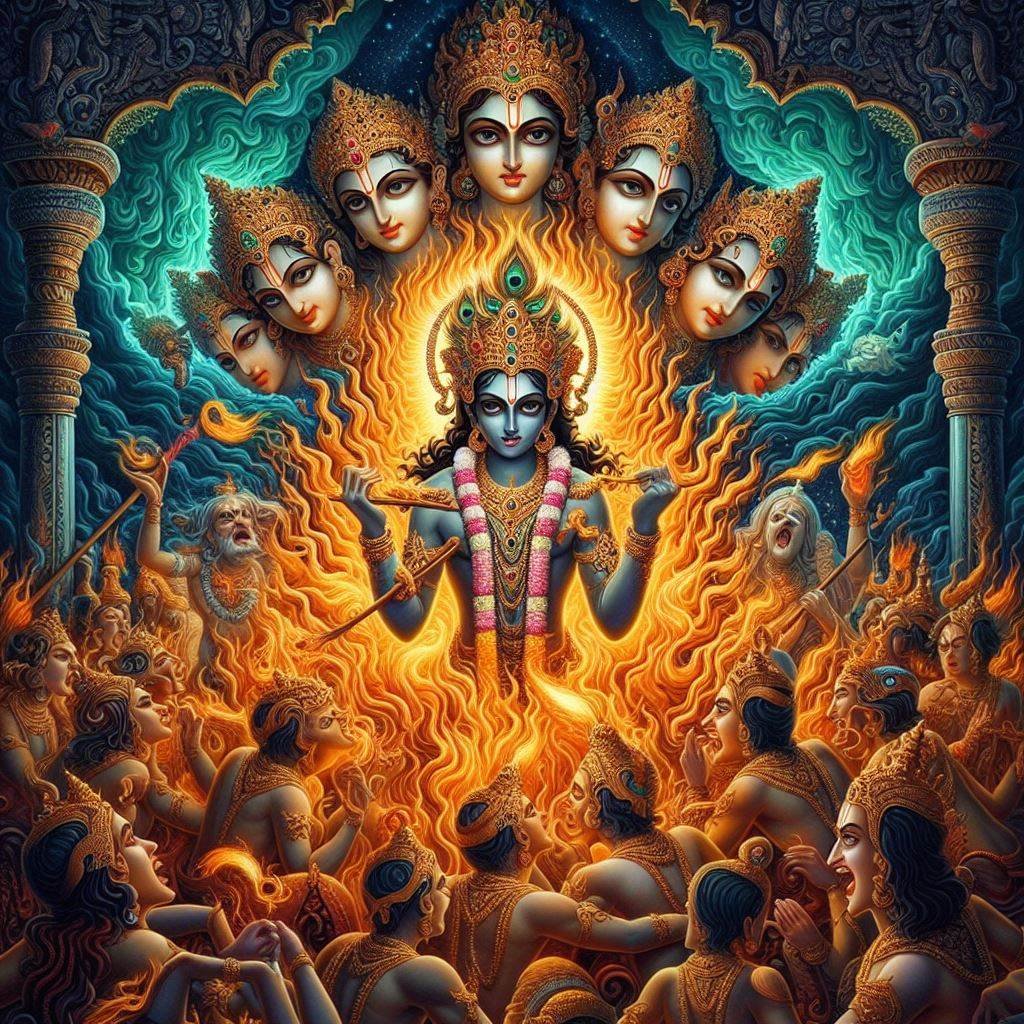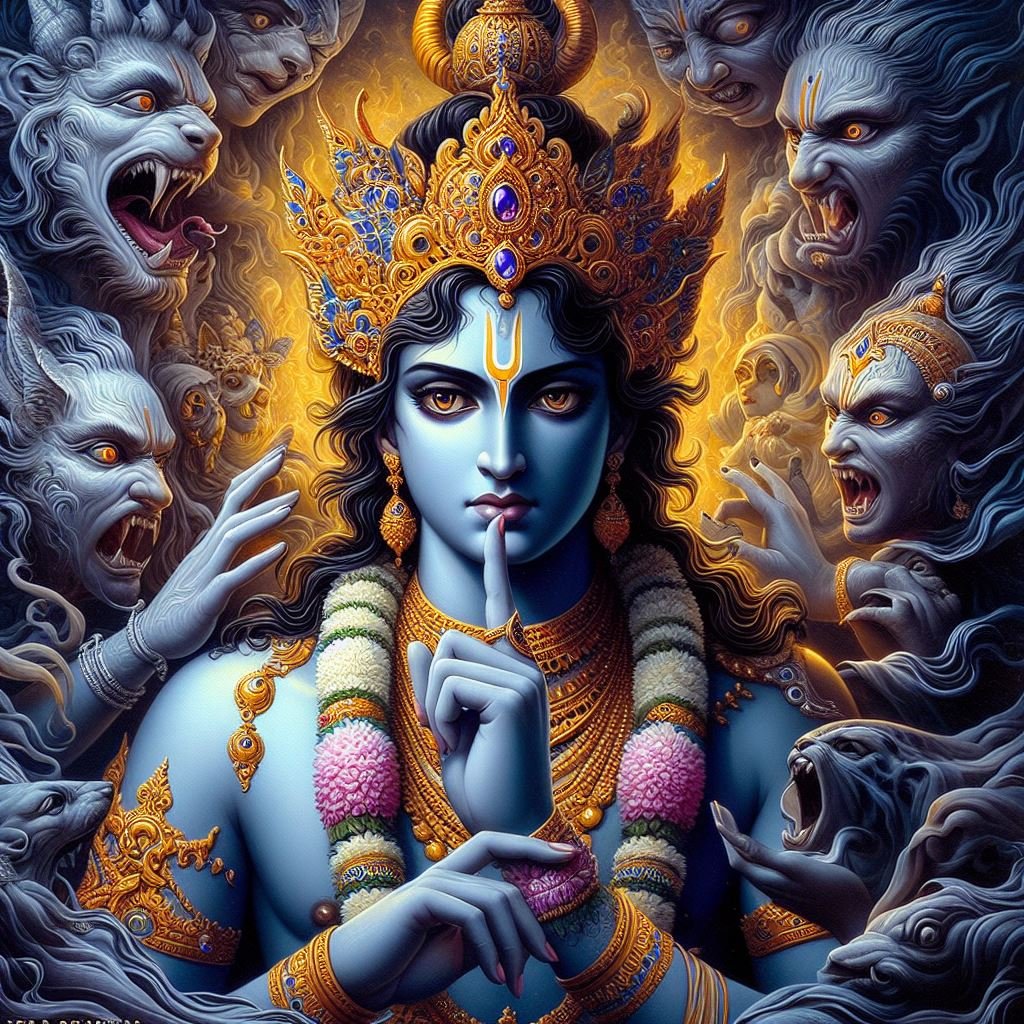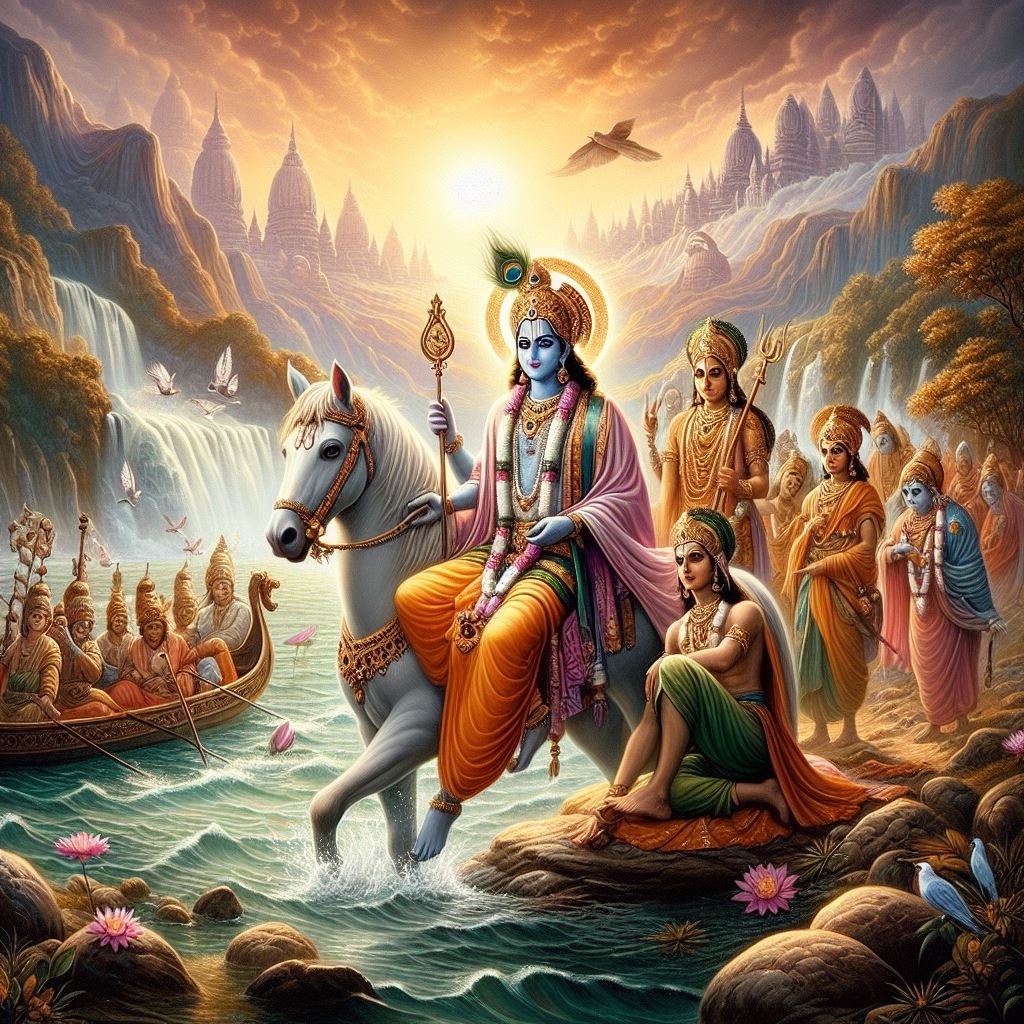Shrimad Bhagwat Geeta Chapter 4 shlok 1
The Supreme Lord Shree Krishna explained that he imparted the timeless wisdom of Yog to the Sun God, Vivasvan, who then transmitted it to Manu. Manu, in his lineage, subsequently passed down this knowledge to Ikshvaku. Description In this verse, Shree Krishna emphasizes the credibility and significance of the spiritual wisdom he is imparting to …
